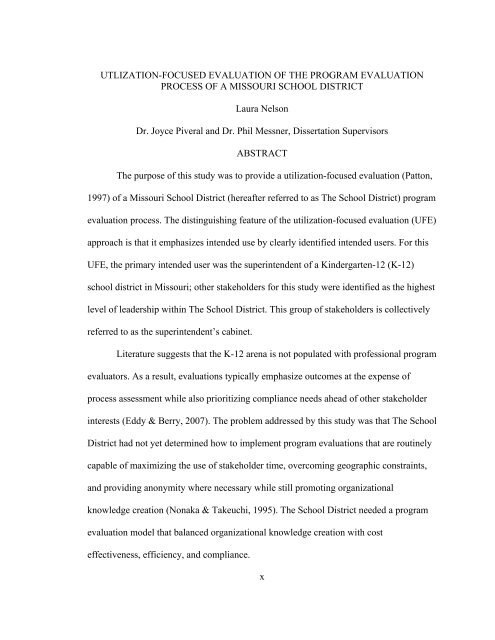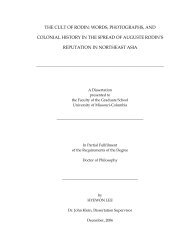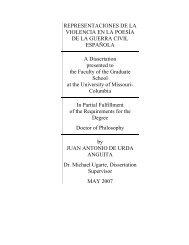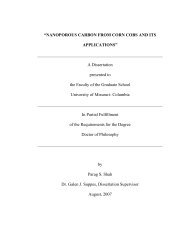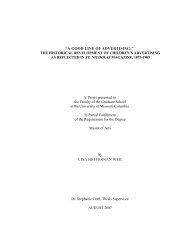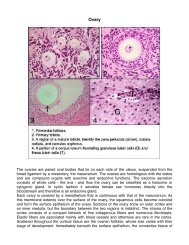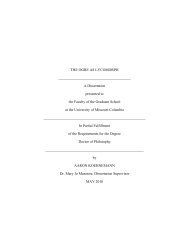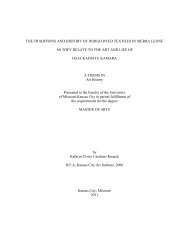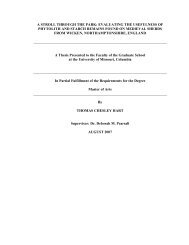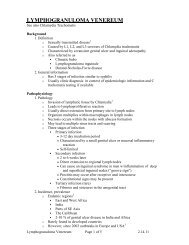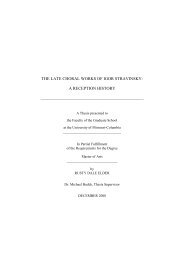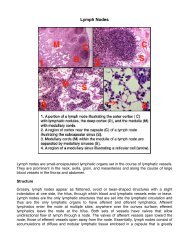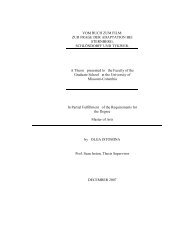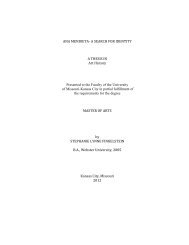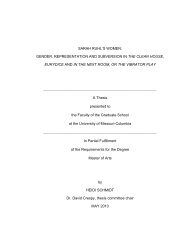Social Construction of Reality - Bad Request
Social Construction of Reality - Bad Request
Social Construction of Reality - Bad Request
Create successful ePaper yourself
Turn your PDF publications into a flip-book with our unique Google optimized e-Paper software.
UTLIZATION-FOCUSED EVALUATION OF THE PROGRAM EVALUATION<br />
PROCESS OF A MISSOURI SCHOOL DISTRICT<br />
Laura Nelson<br />
Dr. Joyce Piveral and Dr. Phil Messner, Dissertation Supervisors<br />
ABSTRACT<br />
The purpose <strong>of</strong> this study was to provide a utilization-focused evaluation (Patton,<br />
1997) <strong>of</strong> a Missouri School District (hereafter referred to as The School District) program<br />
evaluation process. The distinguishing feature <strong>of</strong> the utilization-focused evaluation (UFE)<br />
approach is that it emphasizes intended use by clearly identified intended users. For this<br />
UFE, the primary intended user was the superintendent <strong>of</strong> a Kindergarten-12 (K-12)<br />
school district in Missouri; other stakeholders for this study were identified as the highest<br />
level <strong>of</strong> leadership within The School District. This group <strong>of</strong> stakeholders is collectively<br />
referred to as the superintendent’s cabinet.<br />
Literature suggests that the K-12 arena is not populated with pr<strong>of</strong>essional program<br />
evaluators. As a result, evaluations typically emphasize outcomes at the expense <strong>of</strong><br />
process assessment while also prioritizing compliance needs ahead <strong>of</strong> other stakeholder<br />
interests (Eddy & Berry, 2007). The problem addressed by this study was that The School<br />
District had not yet determined how to implement program evaluations that are routinely<br />
capable <strong>of</strong> maximizing the use <strong>of</strong> stakeholder time, overcoming geographic constraints,<br />
and providing anonymity where necessary while still promoting organizational<br />
knowledge creation (Nonaka & Takeuchi, 1995). The School District needed a program<br />
evaluation model that balanced organizational knowledge creation with cost<br />
effectiveness, efficiency, and compliance.<br />
x


